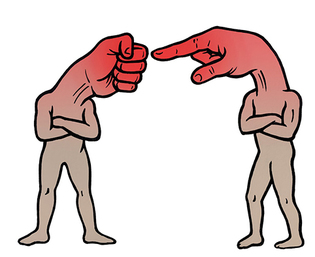 loading
loading
FindingsNoted Gregory NemecView full imageFeel like your brain hurts after a vigorous disagreement? Researchers may have figured out why: during conversational conflict, the brain works a lot harder than during an amicable chat. By recording brain activity among pairs of individuals as they discussed controversial statements, researchers from Yale and University College London found that the brains of agreeing pairs exhibited “calm synchronicity,” centered in the brain’s sensory and social areas. But during disputes, other brain regions involved in higher cognitive functions were mobilized. A significant number of COVID-19 patients experience symptoms long after their bodies have cleared the virus, even if they had only mild cases. Yale immunologists Akiko Iwasaki and Aaron Ring ’08BS/MS have found that the blood of COVID-19 patients contains large numbers of autoantibodies: that is, antibodies that mistakenly attack organs, tissues, and the immune system itself, rather than fighting the virus. The two posit that the autoanti-bodies’ harmful effects may persist in some individuals after the initial infection has abated.
The comment period has expired.
|
|